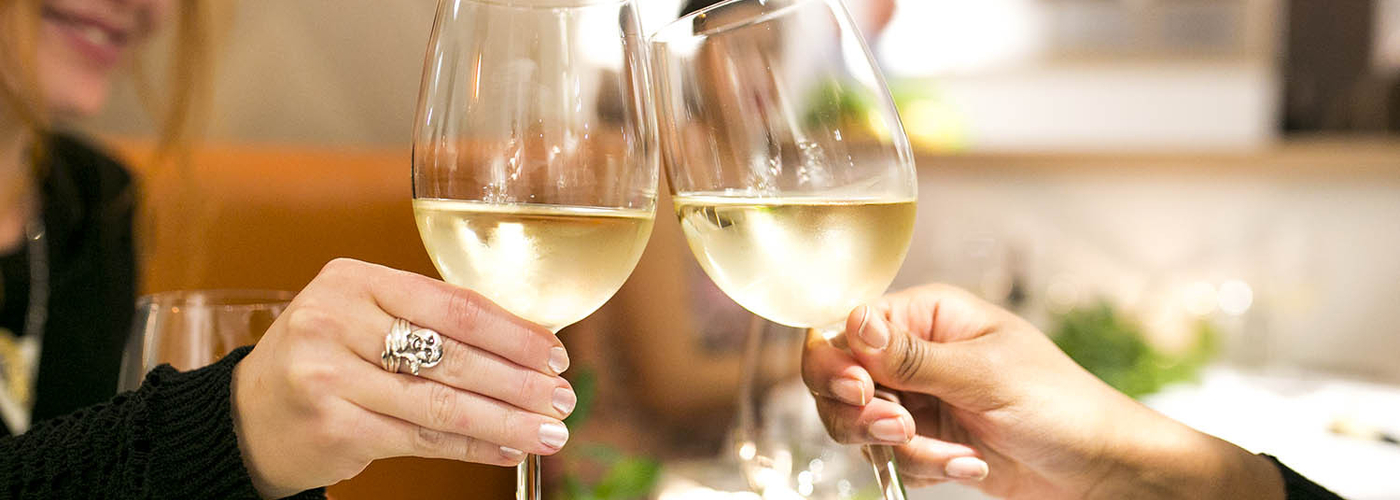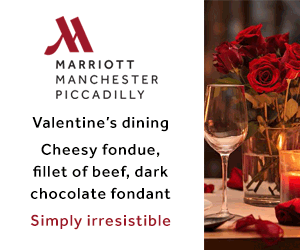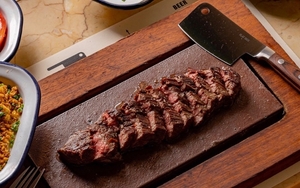We ask northern restaurant and bar professionals if the promotion should return
The weather’s getting warmer, thoughts are turning to beer gardens and restaurants returning and the chancellor is poised to announce the budget.
As the first lockdown ended last year, Sunak launched Eat Out To Help Out. This retro jingoistic catchphrase, reminiscent of Keep Calm and Carry On, smacked of a gimmick papering over the gaping cracks in the government’s strategy (or lack thereof) in combatting the pandemic. But along with the furlough scheme, its supporters argued that it was a huge boost to the fortunes of the hospitality industry. And people loved it. Of course, who doesn't love a half-price meal?
It has been painted badly in the press because everyone likes to point fingers and pass blame
On the other hand, some suggested that this geeing up of the masses to ‘do their bit’ to support restaurants (by getting a half-price tea) may have contributed to the acceleration of the second wave. However, the stringent health and safety requirements for running restaurants mean that they are among the most hygienic places you can go. So did it really?
What’s not in dispute is that this is an industry that provides countless jobs and really needs support getting back on its feet. Should there be another Eat Out to Help Out or is there enough demand for restaurants to open that it shouldn’t be an issue to pay full price and government support should be targeted in other ways? We discussed the issue with some northern hospitality professionals.
What was it like for the people working throughout Eat Out To Help Out last year and would they welcome its return?
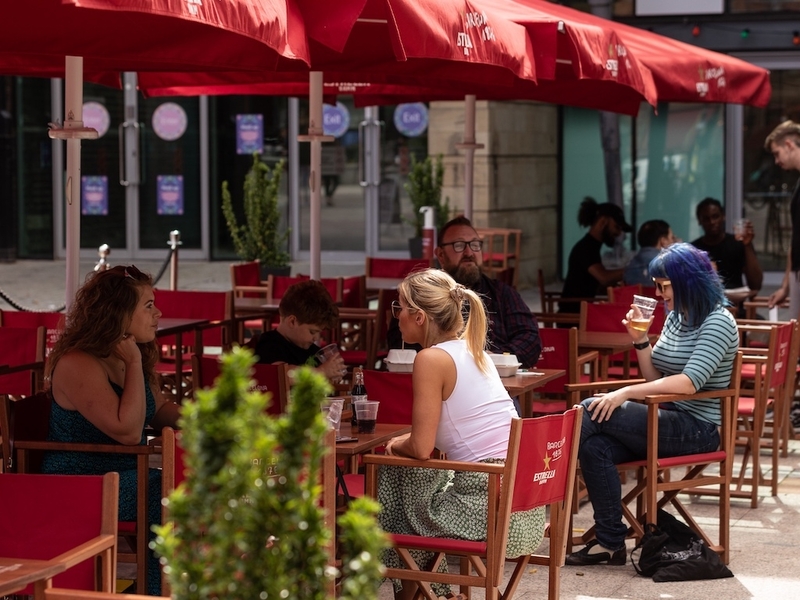
Should Eat Out To Help Out return?
Mary-Ellen McTague, The Creameries: “No. I think the money that's spent on that should be put into supporting businesses to be able to stay closed and not encouraging people to be open until it's really, properly safe for their staff and their customers. That doesn't seem like a sensible way of supporting restaurants to me. Obviously, people wanted to be open. Of course they did. But [this is a government scheme] so it’s incumbent on businesses to be open and putting themselves, their staff and their customers at risk. The support's there if you're open and if you're not open, the support, isn't there. That's not the right way to do it.”
Adam Reid, The French at The Midland Hotel: “I don’t think Eat Out To Help Out needs to return. We saw how things escalated too quickly after the first lockdown. I think there’s enough pent-up demand to get everyone going again whilst maintaining control.”
Thom Hetherington, Northern Restaurant and Bar show: “I do, as operators will enter any recovery weighed down by significant debt and the costs of servicing it. It’s crucial for their balance sheets to ensure they are back with a bounce and have a strong and sustained summer of trading, and Eat Out To Help Out could make the difference.”
Iain Hoskins, Ma Group: "I was a big fan of Eat Out To Help Out. I thought that was a really good scheme and I do hope they bring that back. It was almost the biggest PR campaign that you could ever have for the industry. I think they should do it for the whole summer as well."
Cue Tran, Pho Cue: “We didn’t participate in the last one so it doesn’t affect us either way but I know it did help out a lot of other businesses. I just want us to be able to open and not have to close again.”
David Fox, Tampopo: “I don't buy the idea that it increased the spread of COVID, but I recognise the fact that it could be perceived to have. We served something like 150,000 customers and didn't have one member of the public come to us through test and trace [saying they caught COVID-19] through our restaurant. The only restaurant that I know that had more than one person [with COVID-19] was a well-known chicken brand because the staff had a party at that at someone's house. The irony is, if they've had the party in a pub, where they were socially distant, they'd have been less likely to have had as many people get it.
“I had two members of staff who got COVID over the summer. There was zero evidence of them having passed it on to anyone else because we operated at a metre-plus and even on the staff breaks they didn't sit next to each other. Hand washing every 30 minutes. They picked it up from their flatmate and they didn't spread it in restaurants. Whereas sure as hell if they'd gone round to your house for a bit of a party they would have spread it because the bathroom wouldn't be cleaned every hour and they wouldn't operate at a metre-plus.”
Becky Wilkes, Manchester Hospitality Network: “There is no evidence whatsoever that Eat Out To Help Out contributed to the high rise in cases, we now have figures to prove this. It has been painted badly in the press because everyone likes to point fingers and pass blame. I'd love to see it return because it gives people an opportunity to eat out in 'that particular' restaurant at a more accessible price point and it's always great to see new faces come through the doors and watch their first reaction to a certain dish or cocktail.”
Porky Askew, The Art School: “I still believe it was one of the best initiatives that they did. Some people blame it for the second wave. I don't. From what the data says it was largely down to universities and schools going back. In August, the rates stayed fairly low and even though the businesses were booming and everybody wanted to get out, it was still socially distanced.”
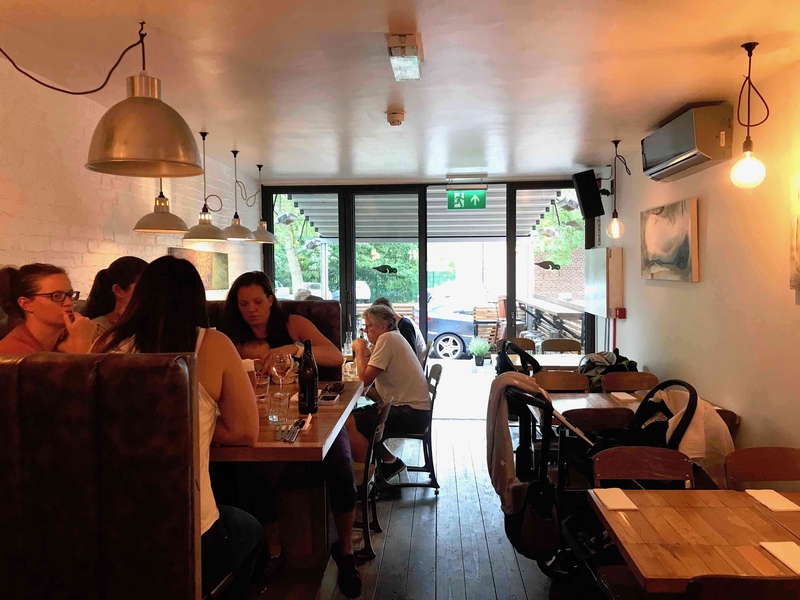
Duncan Raynard, The Oystercatcher: “It helped us last time as we got lots of new customers and could show them what we do. But then again we got lots of customers who didn’t really want to come to our restaurant, they just wanted money off any meal.”
Lee Horsley Frost, WH Frost Butcher: “I would do it cautiously because that August we were working all the hours god sends to supply restaurants. They were ringing me up with two and three orders a day. We do a lot of pubs in Cheshire and they were ringing up saying, 'You know that meat that you sent at 10 o'clock this morning? It's all gone. Can we have another delivery at 3 this afternoon?’”
Sam Buckley, Where The Light Gets In: “Any incentive to keep the economy turning must be good for confidence, I guess.”
Jane Dowler, Evuna: “There is no doubt it gave us a huge revenue boost and was great for customers. However, it was short-lived when tier restrictions came into place in Manchester with no rule of 6."
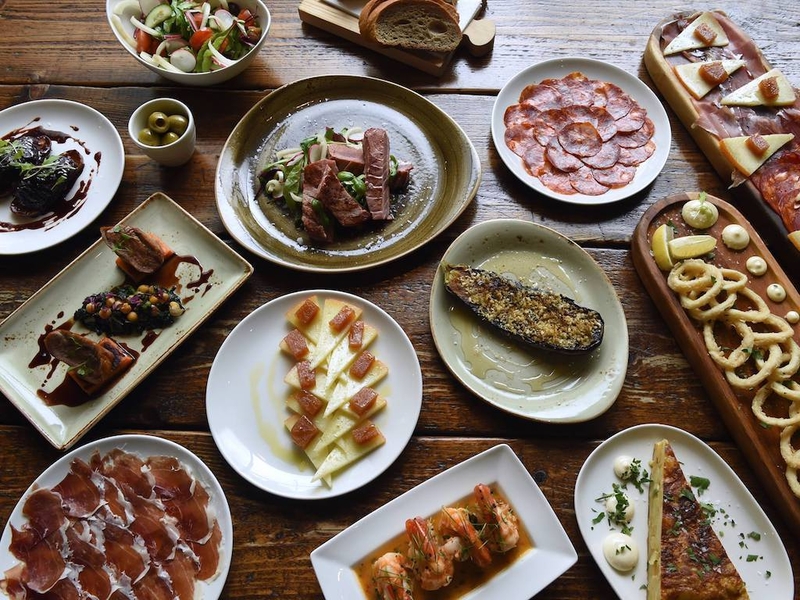
What were the downsides to Eat Out To Help Out?
Duncan Raynard: “It encourages at-risk people to congregate when they should be staying safe. It is also open to misuse. I know some businesses claimed for money fraudulently and made claims where they shouldn’t.”
Lee Horsley Frost: “It was busy but I think it concentrated the second wave. It was really big. It helped but it didn't help because they had to shut down a few months later. They made a bit out of it and then they lost it because of the second wave.
“Meat prices also went through the roof because the farmers thought, ‘Oh yeah, people want ribeye steaks and sirloin steaks and fillet steaks half price?’ Well they were just holding cattle back at the markets. So they were struggling to get the stuff and the price went up. The farmers saw what was happening and thought, 'We'll make hay while the sun shines.’”
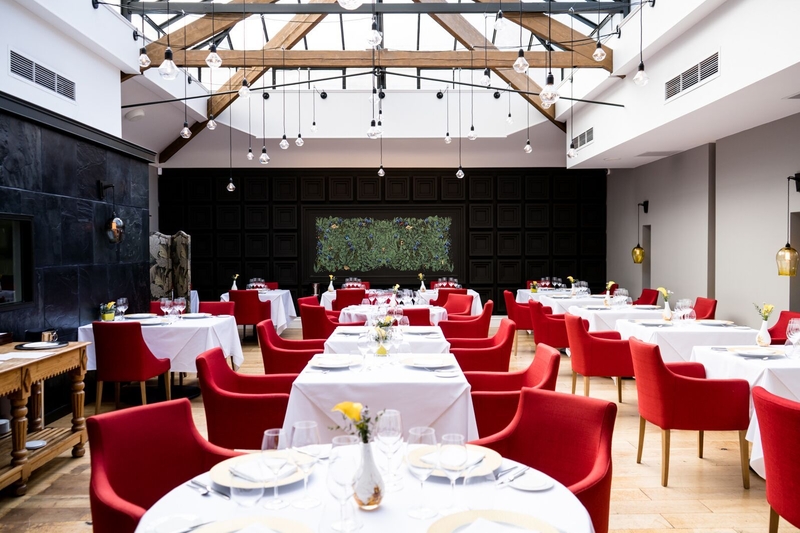
Porky Askew: "I think they're probably a bit scared of it. They're worried about the PR. People might say they were being reckless. This roadmap is extremely cautious and I think that they're doing it so that they're minimising any criticism that can be thrown at them.”
David Fox: “There were some businesses that weren't geared up to take the money on a Monday to Wednesday, or the money that they took on a Monday to Wednesday was offset by the money they didn't take the weekend.
“Whilst it worked for a lot of businesses, the timing of that also was to communicate to the public that it's safe to go out, whereas I think what what what the summer proved is that there's a meaningful amount of people, particularly in Manchester, that don't need Eat Out To Help Out to go out.”
Jane Dowler: "It had massive effects on staff morale. They were put under extreme stress after being off on furlough since March."
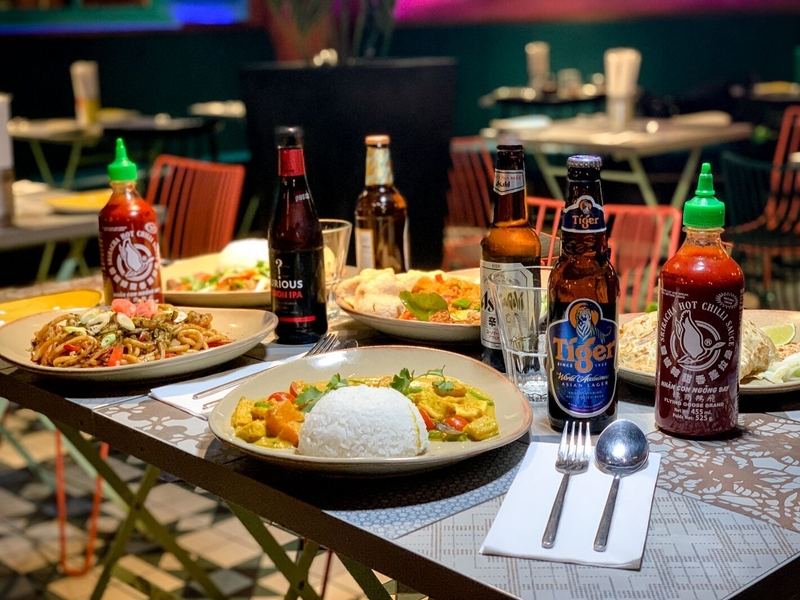
What would be a better option to help the hospitality industry to bounce back?
Duncan Raynard: “I don’t think they need to do it this time as most places will be busy anyway. But there will be some places that would benefit greatly from it. From a restauranteur point of view, I want it to return, as it will give a much-needed boost to our business and would enable us to give lots of hours to our staff. From a personal point of view, I think the money should be used elsewhere, helping the NHS for example.”
Porky Askew: “I think in this instance because we've had such a long lockdown, there is that much pent up demand people will come out anyway. They might need to look at some new ideas of how to stimulate other sectors. Events and larger venues are struggling because, even when they do reopen, with social distancing their capacities are reduced dramatically. They haven't had a bean through all this.”
Lee Horsley Frost: “Don’t offer such a massive discount. It was 50% off, wasn't it? It was too much. I know people who were going out for half-price steaks. Getting a ribeye for a tenner. They need to liaise with the farmers and the suppliers. The drinks people need to be involved because you couldn't get 50% off your alcohol.
“Just cut VAT for 12 months. They’ll put their own offers on anyway if they don't have to pay as much tax and don't get hammered with corporation tax. If they're allowed to make a profit, let them bloody keep it and reinvest it in their employees and their businesses rather than giving it all to the exchequer. The worst thing you can do is make a lot of money fast and then have to give away in tax. It's back to square one. They need support and they need cash flow. It affects their mental health. They can't sleep at night thinking how am I going to pay the bills?”
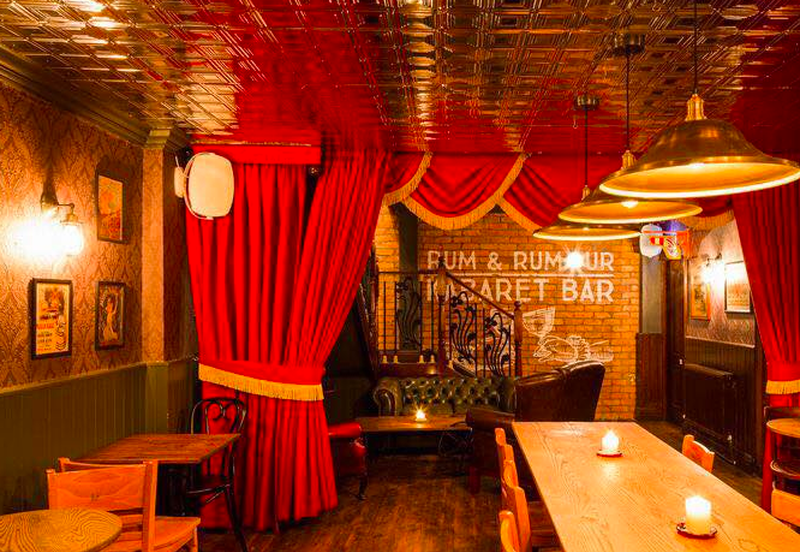
David Fox: “What we need is sustained long term support so if you offered me another six months or 5% VAT I'll take that. That allows you to plan.”
Jane Dowler: "I would prefer a longer-term plan. We have so many challenges to overcome: How do we cope with the holiday pay accrued for 70% of this year when we have had zero income and 100% staff on furlough? How do we pay off our unpaid rent? Etc. Maybe not 3 days a week but a longer summer offer would be less stressful on the staff and allow us to recover somewhat over the summer."
Ian Hoskins: "Maybe they should just focus on the independents or operators under 20. It seemed a little bit ridiculous to see takeaways like McDonald's and places like that doing it. I don't think I've ever driven past a drive-through McDonald's and not seen queues right the way around. It didn't feel like that was in the spirit of how it was intended."
Thom Hetherington: “I would like to see a new scheme with a wider ‘lifestyle’ remit, offering savings to encourage people back into events, galleries and cultural institutions too. You could even combine it with discounts and incentives on everything from hotel stays to transport, making it into a holistic 'grand day out' package. I suspect Manchester, with its culture of collaboration, is perfectly placed to deliver such a scheme.”
What did you think of the Eat Out To Help Out scheme and should it return? Have your say on our Facebook and Twitter or comment below.




